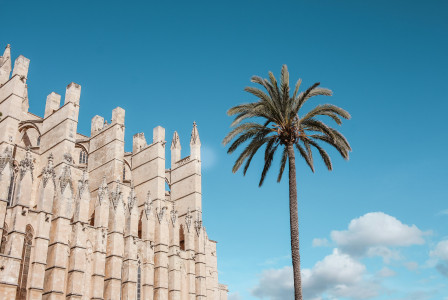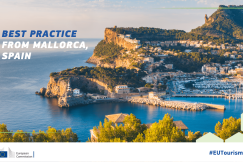Policy
04 November 2025
Palma's New Policies Aim for Sustainable and Responsible Tourism
Policy
04 November 2025
Adventure tourism
Coastal, maritime and inland water tourism
Cultural tourism
+15 more
Login / create an account to be able to react
-
211

Palma de Mallorca is implementing innovative policies as of 2026 to reduce overcrowding and shift towards responsible tourism. Discover how these changes impact the island’s cultural and environmental landscape.
Travel And Tour World
Ajuntament de Palma
Topics
Spain
Destination Management & Marketing Organisations
Local Authorities
-
Specific types of tourism
-
-
Adventure tourism
-
Coastal, maritime and inland water tourism
-
Cultural tourism
-
Ecotourism
-
Education tourism
-
Festival tourism
-
Gastronomy tourism
-
Health and medical tourism
-
MICE tourism
-
Mountain tourism
-
Religious tourism
-
Rural tourism
-
Sports tourism
-
Urban/city tourism
-
Wellness tourism
-
-
Transition Pathway Strategic Areas
-
-
Governance of tourism destinations
-
R&I on climate-friendly tourism
-
-
Business activities
-
-
Activities of associations and other organisations supporting tourism
-
Share
Palma de Mallorca, a renowned Spanish tourist destination, is set to transform its tourism industry by 2026 with groundbreaking policies aimed at promoting sustainability and cultural preservation. To manage overtourism and its adverse impacts, the city will halt the construction of new youth hostels and tourist apartment rentals. Furthermore, in a move towards family-friendly, low-impact tourism, party boats will be banned to protect the coastal environment.
These measures are designed to encourage cultural tourism, highlight the city's historical landmarks, and ensure a balanced relationship between residents and visitors. Palma's proactive strategies are crucial for safeguarding its cultural and environmental integrity while enhancing visitor experiences.
For a deeper understanding of these transformative changes and their implications, we encourage you to explore the original article.
#Sustainable tourism #Responsible travel #Low-impact tourism #Cultural preservation #Sustainable destinations #Destination management
Comments (0)
Related content
See also
Council conclusions on the European Agenda for Tourism 2030, embracing sustainability and digitalization
- Categories
- Coastal, maritime and inland water tourism Cultural tourism Ecotourism +42 more
Sustainable Tourism Plan for Playa del Espigón 2024: Strategies and goals
- Categories
- Coastal, maritime and inland water tourism Cultural tourism Ecotourism +42 more
The Glasgow Declaration: Driving climate action in tourism
- Categories
- Coastal, maritime and inland water tourism Cultural tourism Ecotourism +43 more







